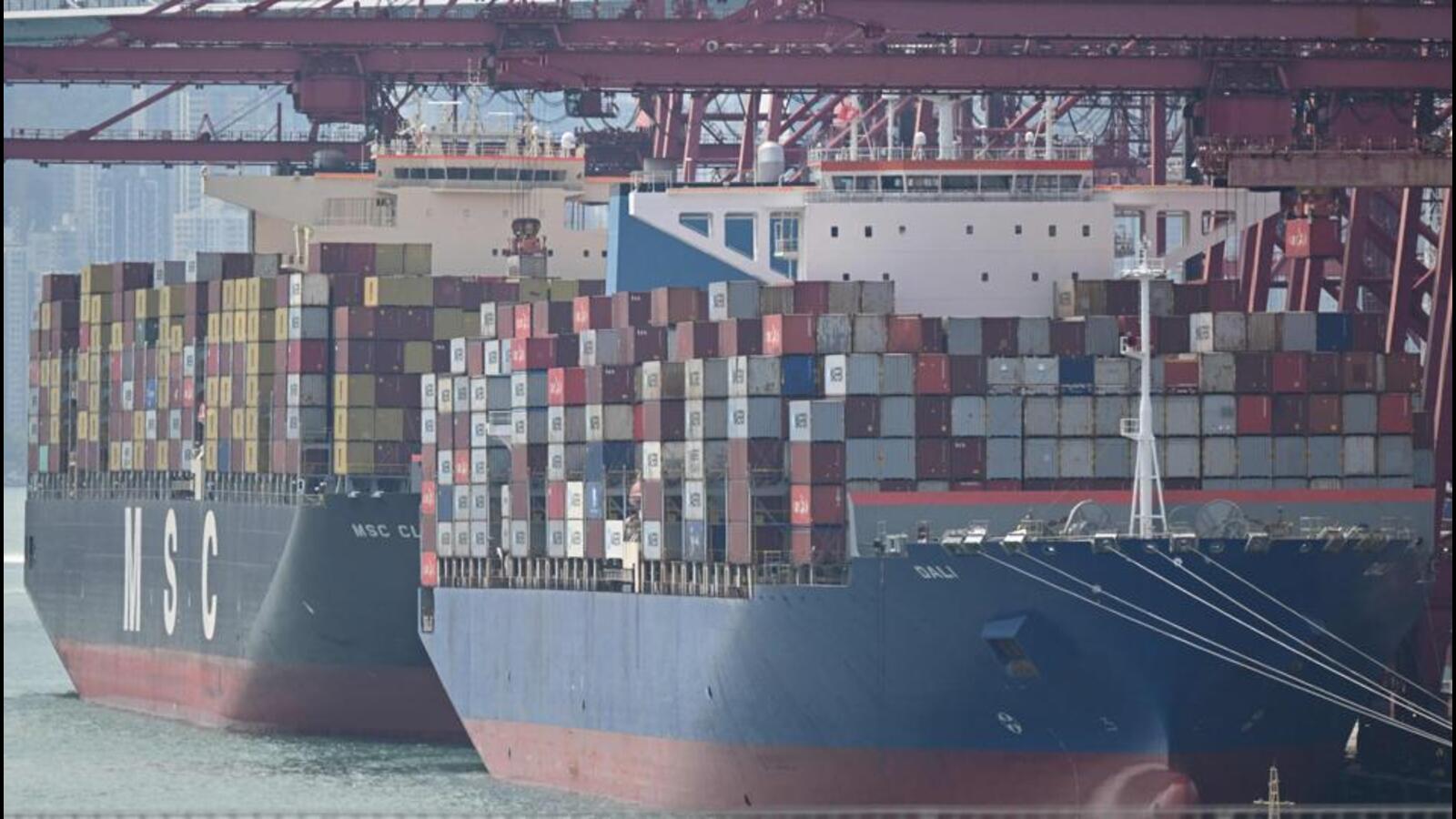The “IMO Net-zero by 2050 Framework”, approved during the Marine Environment Protection Committee’s 83rd session in London, combines mandatory emissions limits with greenhouse gas pricing across the entire shipping sector. India was represented at the talks by the ministry of ports, shipping and waterways.
Starting in 2028, vessels burning conventional fossil fuels will face a $380 per tonne fee on the most intensive portion of their emissions, and $100 per tonne on remaining emissions above a certain threshold. Ships will need to either transition to lower-carbon fuel mixes or pay for excess emissions generated.
The measures, which will be formally adopted in October 2025 before taking effect in 2027, will become mandatory for large ocean-going ships over 5,000 gross tonnage — vessels that account for 85% of total CO2 emissions from international shipping, according to the IMO.
The new carbon tax is expected to generate $30-40 billion in revenues by 2030, approximately $10 billion annually. However, climate experts warn the agreement falls short of ambition, projecting only a 10% absolute emissions reduction in the shipping sector by 2030 — far below the IMO’s own targets established in their 2023 revised strategy.
According to Transport & Environment, a clean transport think tank, the framework would deliver 60% emissions reduction by 2040 but fail to reach the promised net-zero by 2050.
The policy secured backing from 63 countries including the European Union, Japan, South Africa, and Singapore, alongside India, Brazil and China. Notably, petro-states like Saudi Arabia, the UAE, Russia, and Venezuela opposed the agreement.
The United States withdrew from IMO carbon tax talks earlier in the week, stating it would consider “reciprocal measures” to offset any fees charged to US ships, according to a diplomatic note reported by Reuters on April 9.
“The US position was by no means a surprise and fortunately did not prevent a majority of countries from coming to consensus,” said Emma Fenton, senior director of Climate Diplomacy at Opportunity Green, a think tank based in London.
“Sadly, this decision, whilst historic, was ultimately one that fails climate vulnerable countries and falls short of both the ambition that the climate crisis demands and that member states committed to, just two years ago,” Fenton added.
The agreement holds particular significance as the shipping industry, which accounts for 3% of global emissions, is not covered under the Paris Agreement.
“The shipping levy agreed on is a compromise, with the US not in support of many elements of the plan. It will apply to emissions above a certain target of decarbonisation as opposed to per ton of emission,” said Suranjali Tandon, assistant professor at the National Institute of Public Finance and Policy.
“It is expected that although there will be an incentive to shift to alternative fuels, this shift will be slower,” Tandon added, noting that “it remains to be seen if the US responds with retaliatory actions and how the revenues are redistributed”.
India’s ministry of ports, shipping and waterways did not comment on the decision.
Harjeet Singh, Climate Activist and founding director of Satat Sampada Climate Foundation, offered a cautious assessment: “While the UN shipping agreement shows that international cooperation is still possible after years of difficult talks, it’s a stark reminder that perceived economic interests continue to sideline the planetary emergency we face.”
“This outcome lacks the urgency the climate crisis demands. We must treat this emergency for what it is: penalise polluters meaningfully, and channel every dollar raised not just into decarbonising ships, but critically, into funding a just transition away from fossil fuels in developing nations and helping communities on the frontlines repair climate damages already inflicted,” Singh said.
shipping tax,India,China,Brazil,IMO,carbon pricing mechanism
#countries #agree #adopting #global #shipping #tax #World #News
